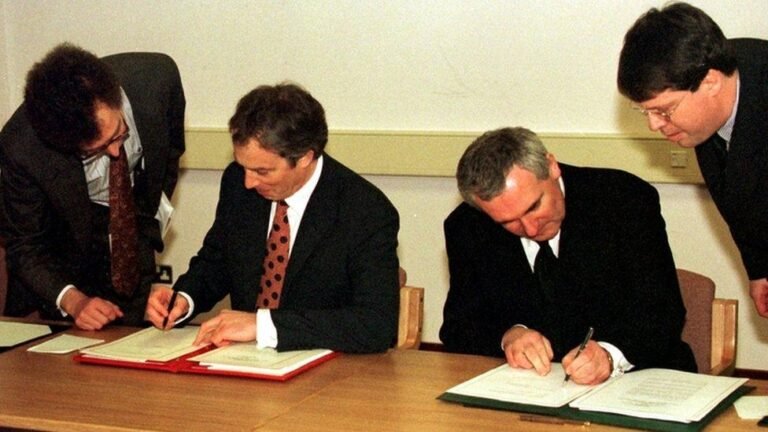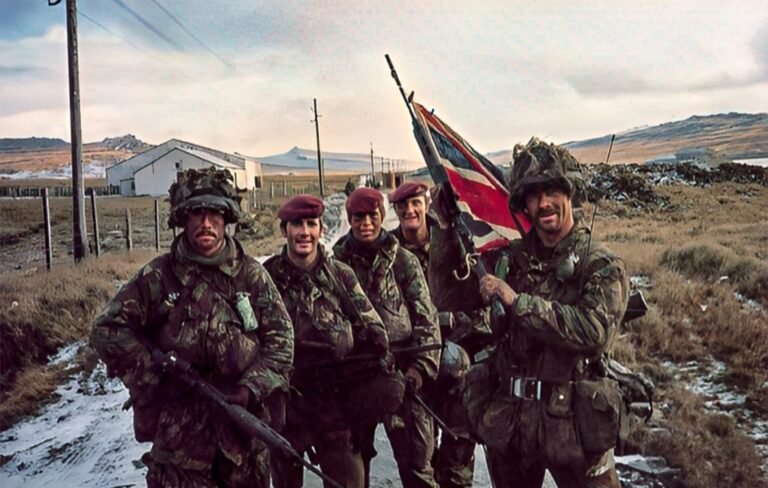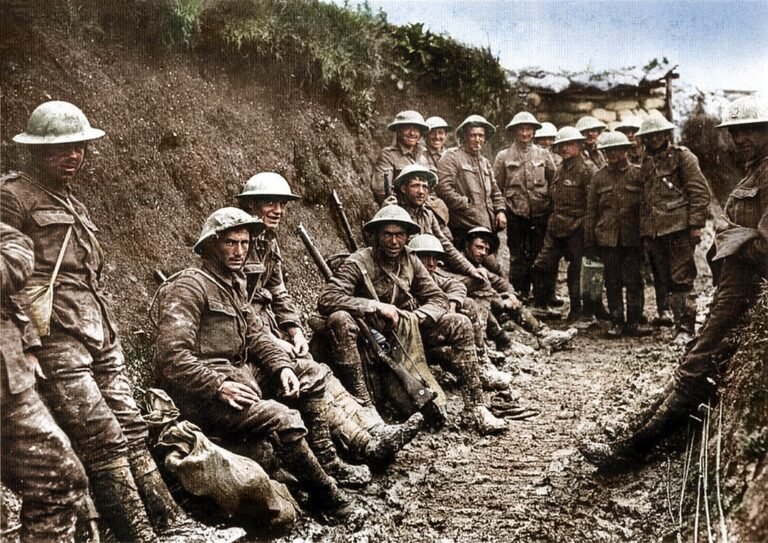The Iraq War is a significant event in recent history. It started in 2003 and had a lasting impact globally.
This conflict began with the United States and coalition forces invading Iraq. The main goal was to remove Saddam Hussein from power. The war led to major changes in Iraq and the Middle East. It affected millions of lives and reshaped international relations.
Understanding the Iraq War helps us learn about its causes, actions, and consequences. This knowledge is crucial for grasping modern global politics and history. Dive into this topic to explore the complexities and lasting effects of the Iraq War.

Credit: cvafoundation.org
Origins Of The Conflict
The Iraq War, also known as the Second Gulf War, was a significant conflict that began in 2003. Understanding the origins of this conflict is crucial to grasp the events that followed and their impact on global politics. This section delves into the historical context and key players that played a pivotal role in the lead-up to the war.
Historical Context
The roots of the Iraq War can be traced back to the Gulf War of 1991. After Iraq invaded Kuwait, a U.S.-led coalition force intervened, leading to Iraq’s defeat. However, tensions remained high as Iraq, under Saddam Hussein, continued to defy United Nations sanctions and weapons inspections.
In the 1990s, the U.S. and its allies imposed strict sanctions on Iraq. These sanctions aimed to dismantle Iraq’s weapons of mass destruction (WMD) program. Despite these efforts, reports of non-compliance and human rights abuses by the Iraqi regime persisted.
The events of September 11, 2001, marked a turning point. The U.S. government, under President George W. Bush, intensified its focus on global terrorism and perceived threats. Iraq was accused of possessing WMDs and having links to terrorist groups, although these claims were later disputed.
Key Players
The Iraq War involved several key players whose actions and decisions shaped the conflict. On one side was Saddam Hussein, Iraq’s dictator, whose aggressive policies and defiance of international norms drew worldwide condemnation. His regime’s brutal repression of political dissent and ethnic minorities further isolated Iraq on the global stage.
On the other side, the U.S. government, led by President George W. Bush, played a central role. Bush’s administration believed that Iraq posed a significant threat to global security. They argued that preemptive action was necessary to prevent the use of WMDs and to promote democracy in the Middle East.
The United Kingdom, under Prime Minister Tony Blair, was a key ally of the U.S. in the lead-up to the war. Blair’s support was pivotal in garnering international backing for military intervention. However, this alliance also faced significant opposition both domestically and internationally.
Additionally, the United Nations and its member states were deeply involved in the debates and decisions regarding Iraq. The UN Security Council passed numerous resolutions aimed at disarming Iraq, but consensus on military intervention was elusive.
What role do you think international diplomacy played in the lead-up to the Iraq War? How might things have been different with more effective communication and negotiation? Reflecting on these questions can help us understand the complexities of global conflicts and the importance of diplomatic efforts.

Credit: www.britannica.com
Military Strategies
The Iraq War involved complex military strategies. These strategies aimed to achieve specific goals. The war had different phases. Each phase required unique approaches. Military tactics evolved over time. Let’s explore the key strategies used.
Initial Invasion
The initial invasion began in March 2003. The US and allied forces led the attack. Their strategy focused on a swift victory. They used overwhelming force and precision strikes. The goal was to topple Saddam Hussein’s regime quickly. Air strikes targeted key infrastructure. Ground troops advanced rapidly. Coordination between air and ground units was crucial. The coalition forces took Baghdad in weeks. The initial invasion achieved its military objectives.
Counterinsurgency Tactics
After the initial invasion, new challenges emerged. Insurgent groups launched attacks against coalition forces. The military needed new strategies. Counterinsurgency tactics became vital. These tactics aimed to win local support. Troops worked to secure communities. They built relationships with local leaders. Providing security and aid were priorities. The goal was to isolate insurgents. Success depended on intelligence gathering. Understanding local dynamics was crucial. Counterinsurgency efforts required patience and adaptation.
Political Ramifications
The Iraq War had far-reaching political ramifications that continue to shape the world today. From significant shifts in government structures to the altering of international relationships, the war’s impact is undeniable. Understanding these political changes is crucial for grasping the broader consequences of the conflict.
Government Changes
One of the most profound changes was the overthrow of Saddam Hussein’s regime. This shift dismantled a long-standing authoritarian government.
The new government, established with the help of the United States, aimed to build a democratic system. However, it faced numerous challenges, including sectarian violence and political instability.
Do you remember the chaos in the early 2000s? It was a time of uncertainty and rapid change. Iraq’s new leaders had the daunting task of uniting a fractured nation.
International Relations
The Iraq War also had significant effects on international relations. The United States’ decision to invade was controversial and led to strained relations with several countries.
Many nations, including some long-time allies, opposed the invasion. This opposition was evident in the United Nations, where debates about the legitimacy of the war were heated.
Reflect on how this might have influenced your own country’s stance on international conflict. Was there a shift in foreign policy or public opinion?
Additionally, the war reshaped the Middle East’s geopolitical landscape. Power dynamics shifted, creating new alliances and hostilities. The impact of these changes is still felt today in ongoing regional conflicts.
Have you considered how these international shifts affect global stability? The Iraq War serves as a reminder of how interconnected our world truly is.
Economic Consequences
The Iraq War led to significant economic consequences. High military spending strained national budgets, impacting global economies. Oil prices fluctuated, affecting international markets and consumer costs.
The Iraq War, a pivotal moment in history, left a significant impact on the country’s economy. The war brought numerous challenges that affected various sectors, reshaping Iraq’s economic landscape. These economic consequences are still felt today, influencing the daily lives of Iraqis. Let’s dive into two major areas that were significantly impacted: infrastructure and the oil industry.
Infrastructure Damage
The war severely damaged Iraq’s infrastructure. Roads, bridges, and buildings were destroyed, leaving behind a trail of devastation. This damage disrupted everyday life and business activities.
Rebuilding infrastructure is costly and time-consuming. The resources required for reconstruction stretched Iraq’s budget, slowing economic recovery. Imagine trying to get to work when the road is filled with rubble – it makes everything harder.
The damaged infrastructure also affected basic services. Access to electricity and clean water became limited. How would you cope if you had to live with frequent power outages and limited water supply?
Oil Industry Impact
Iraq’s oil industry, a vital part of its economy, faced significant challenges. The war interrupted oil production, causing a drop in revenue. This was a major blow because oil exports are crucial for Iraq’s economy.
Security concerns further complicated oil extraction and export. Companies hesitated to invest in such an unstable environment. This hesitation delayed potential economic growth.
The instability led to fluctuating oil prices, impacting global markets. Have you ever wondered how a conflict in one part of the world can affect gas prices in your hometown?
In summary, the economic consequences of the Iraq War have been profound and long-lasting. The damage to infrastructure and the challenges facing the oil industry are just two examples of how deeply the conflict has affected Iraq’s economy. As you reflect on these impacts, consider how rebuilding efforts could shape the country’s future.
Social Effects
The Iraq War had significant social effects, including displacement of millions and a rise in sectarian violence. Many communities faced severe disruptions in daily life.
The Iraq War, a conflict that began in 2003, has left deep social scars that are still healing today. Beyond the political and economic impacts, the social effects are profound and touch the lives of ordinary people in Iraq. These effects, while often overshadowed by headlines about military strategies and political changes, are the realities faced by civilians every day. From heartbreaking civilian casualties to widespread displacement issues, the war has reshaped the social fabric of Iraq in ways that demand attention and understanding.
Civilian Casualties
The human cost of the Iraq War is staggering. Civilian casualties are not just numbers; they represent families torn apart and communities forever changed. Imagine losing a loved one suddenly due to a conflict you have no control over. The emotional toll is immense, affecting mental health and community relationships.
How do you move forward when you lose a neighbor or friend in such tragic circumstances? These losses are not isolated incidents; they ripple through society, creating a collective trauma that challenges the very essence of human resilience. As you read these stories, consider the strength it takes for these communities to rebuild and find hope amid despair.
Displacement Issues
Displacement is another harsh reality for many Iraqis. Families have been forced to leave their homes, often with nothing but the clothes on their backs. This upheaval disrupts education, jobs, and social networks. When you lose your home, you lose a sense of belonging and security.
Where do you go when your home is no longer safe? Displaced individuals often face difficulties in accessing basic services, leading to increased poverty and social instability. It’s not just about finding a new place to live; it’s about rebuilding lives from scratch. This is a challenge many Iraqis continue to face, as they navigate the complexities of starting anew in unfamiliar environments.
The social effects of the Iraq War are a testament to the resilience and courage of its people. As you reflect on these issues, ask yourself: How can global communities support those affected by such profound social changes?
Cultural Shifts
The Iraq War led to significant cultural shifts globally. It altered perceptions on international relations and influenced media portrayals. This conflict sparked debates on ethics and policy, reshaping discussions about democracy and intervention.
The Iraq War has left a significant mark on global society, not just politically but culturally as well. This war catalyzed numerous cultural shifts that continue to influence perspectives and behaviors worldwide. From the way media portrays conflict to the evolving public perception, these changes prompt us to rethink the narratives we consume and believe.
Media Representation
The media’s role in the Iraq War cannot be overstated. It shaped the way we viewed the conflict from our living rooms. News outlets, documentaries, and films brought the war into our daily lives, often with dramatic narratives.
Journalists faced unprecedented challenges in reporting from conflict zones. This led to a rise in embedded journalism, where reporters lived and traveled with military units. While this gave us a closer look at the war’s realities, it also raised questions about bias and objectivity.
Have you ever considered how the media’s portrayal of the Iraq War influenced your views? It’s crucial to think about the source of our information and the potential agendas behind it.
Public Perception
Public perception of the Iraq War varied greatly, influenced heavily by media representation and political discourse. Initially, many supported the war, believing it was essential for global security. However, as the conflict dragged on, opinions shifted.
People began to question the war’s justification as reports of civilian casualties and the absence of weapons of mass destruction surfaced. This shift in perception was not just national but global, affecting international relations and attitudes towards future conflicts.
Think about your own views over time. Have they changed? Understanding why perceptions shift can help you critically analyze new information and form balanced opinions in the future.
The cultural shifts from the Iraq War highlight the power of media and the importance of questioning narratives. They remind us to stay informed and critically engage with the world around us.
Legacy On Global Policy
The Iraq War left a lasting imprint on global policy. It changed how nations view conflict, diplomacy, and the balance of power. Countries began re-evaluating their military strategies and diplomatic approaches. This shift influenced global relations and international policies significantly.
Military Doctrine Evolution
The war prompted a change in military thinking worldwide. Nations observed the complexity of modern warfare. They saw the need for adaptable strategies. This led to a focus on technology and intelligence. Military operations now prioritize precision and efficiency. The importance of understanding cultural dynamics became clear. Armies started training for unconventional scenarios.
Diplomatic Strategies
Diplomatic strategies also evolved due to the Iraq War. Countries learned the value of alliances. Building trust became crucial in international relations. The war showed the cost of unilateral actions. Diplomatic efforts now emphasize collaboration and communication. Nations seek peaceful resolutions to conflicts. This shift encourages dialogue over confrontation.

Credit: www.aljazeera.com
Lessons Learned
The Iraq War taught vital lessons about the importance of planning and understanding cultural differences. It highlighted the need for clear objectives and exit strategies in military interventions.
The Iraq War, a defining moment in early 21st-century geopolitics, offers crucial lessons that continue to shape global strategies and policies. Understanding these lessons is essential for anyone interested in international relations or military strategy. Have you ever wondered how past conflicts influence future decisions? Let’s dive into the lessons learned from the Iraq War.
Strategic Mistakes
The Iraq War highlighted several strategic errors that serve as cautionary tales. One significant mistake was the underestimation of the post-war rebuilding process. The lack of a clear plan for reconstruction led to chaos and instability. This oversight reminds us of the importance of planning beyond the battlefield.
Another error was the failure to anticipate local resistance. Ignoring cultural and social dynamics can lead to prolonged conflict. You might think a military victory is enough, but without winning hearts and minds, peace remains elusive.
Future Implications
The lessons from Iraq have profound implications for future military engagements. Policymakers are now more aware of the need for comprehensive post-conflict strategies. It’s crucial to ask whether current plans adequately address long-term stability and growth.
Furthermore, international cooperation is more vital than ever. The Iraq experience showed the limits of unilateral action. Do you think global partnerships can prevent future strategic blunders?
In reflecting on these lessons, you see the importance of learning from past mistakes. The Iraq War serves as a reminder that strategy is not just about winning battles, but about securing lasting peace. How will these insights shape tomorrow’s decisions?
FAQs
Why Did The Us Go To War In Iraq?
The US invaded Iraq in 2003 to eliminate weapons of mass destruction, remove Saddam Hussein from power, and combat terrorism. The government aimed to promote democracy in the Middle East. However, no weapons of mass destruction were found, leading to controversy over the war’s justification.
Who Won The Iraq War In 2003?
The United States and coalition forces won the Iraq War in 2003 by toppling Saddam Hussein’s regime.
Was The Iraq War Illegal?
The Iraq War sparked debate on its legality. Critics argue it violated international law, lacking UN approval. Supporters claim self-defense and disarmament justified the invasion. Legal opinions remain divided, reflecting complex geopolitical dynamics. Understanding the war’s legal status requires examining international law principles and interpretations by experts.
What Happened In The Iraq War?
The Iraq War began in 2003 with a US-led invasion. It aimed to dismantle Saddam Hussein’s regime. The war resulted in prolonged conflict and instability. Thousands of lives were lost, and massive displacement occurred. The war officially ended in 2011, leaving Iraq with ongoing challenges.
Conclusion
The Iraq War left a significant mark on history. Many lessons learned. It changed political landscapes and affected countless lives. Understanding this war helps us grasp global dynamics better. We remember the sacrifices made by soldiers and civilians. Reflecting on these events can guide future decisions.
Peace and stability remain vital for a better world. The Iraq War serves as a reminder. A reminder to strive for diplomacy and harmony. Let’s learn and work towards a peaceful future. Together, we can build a more understanding world.








